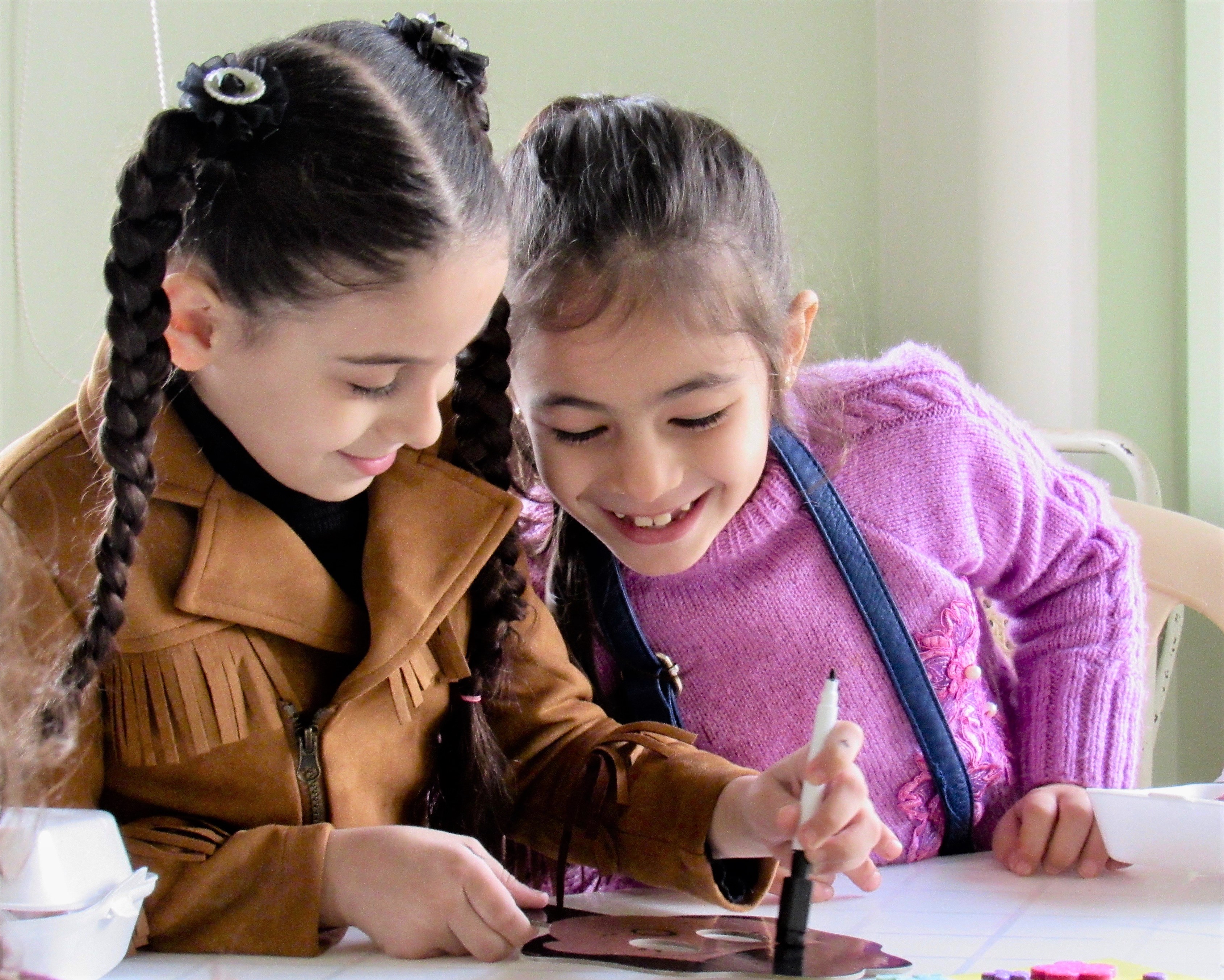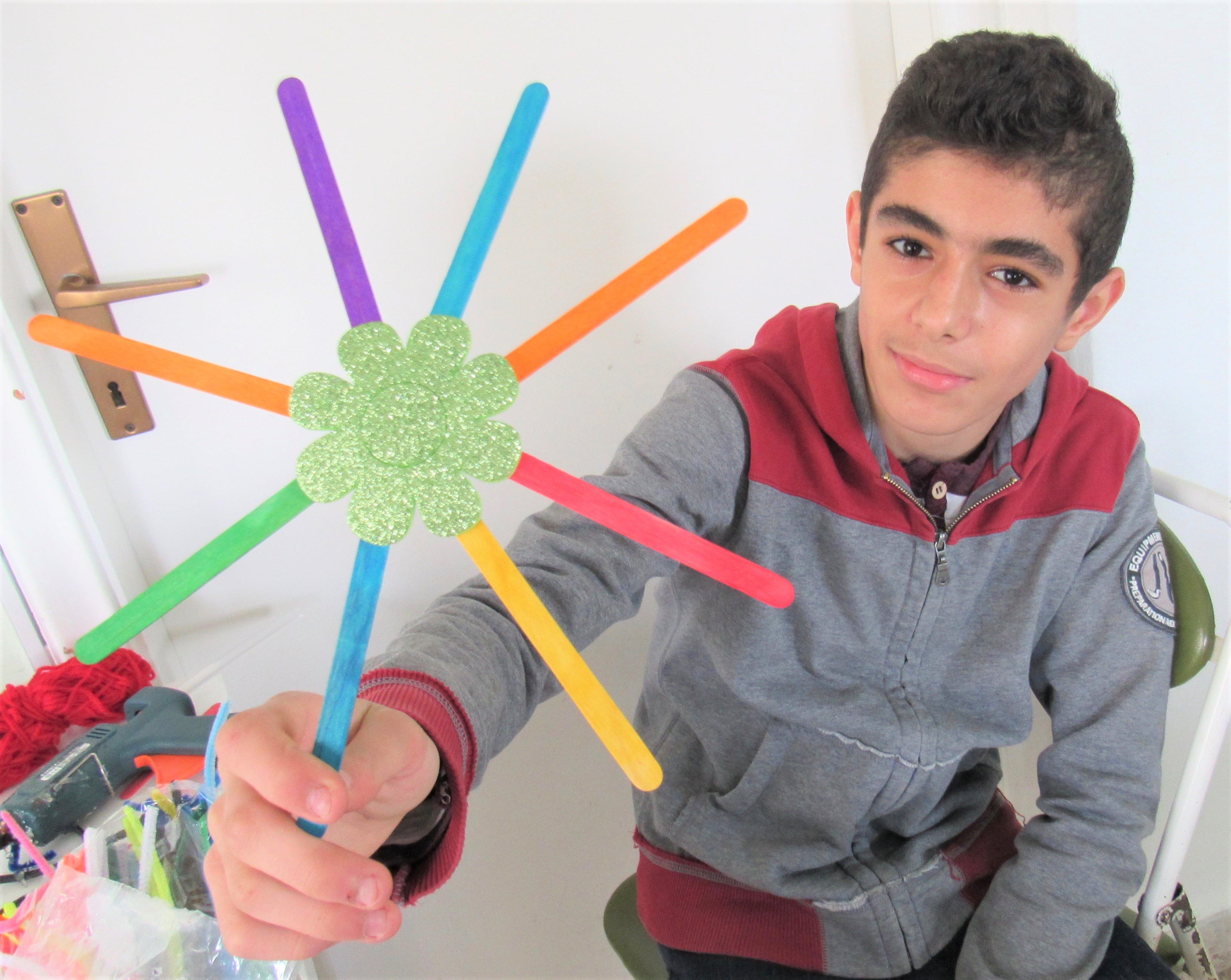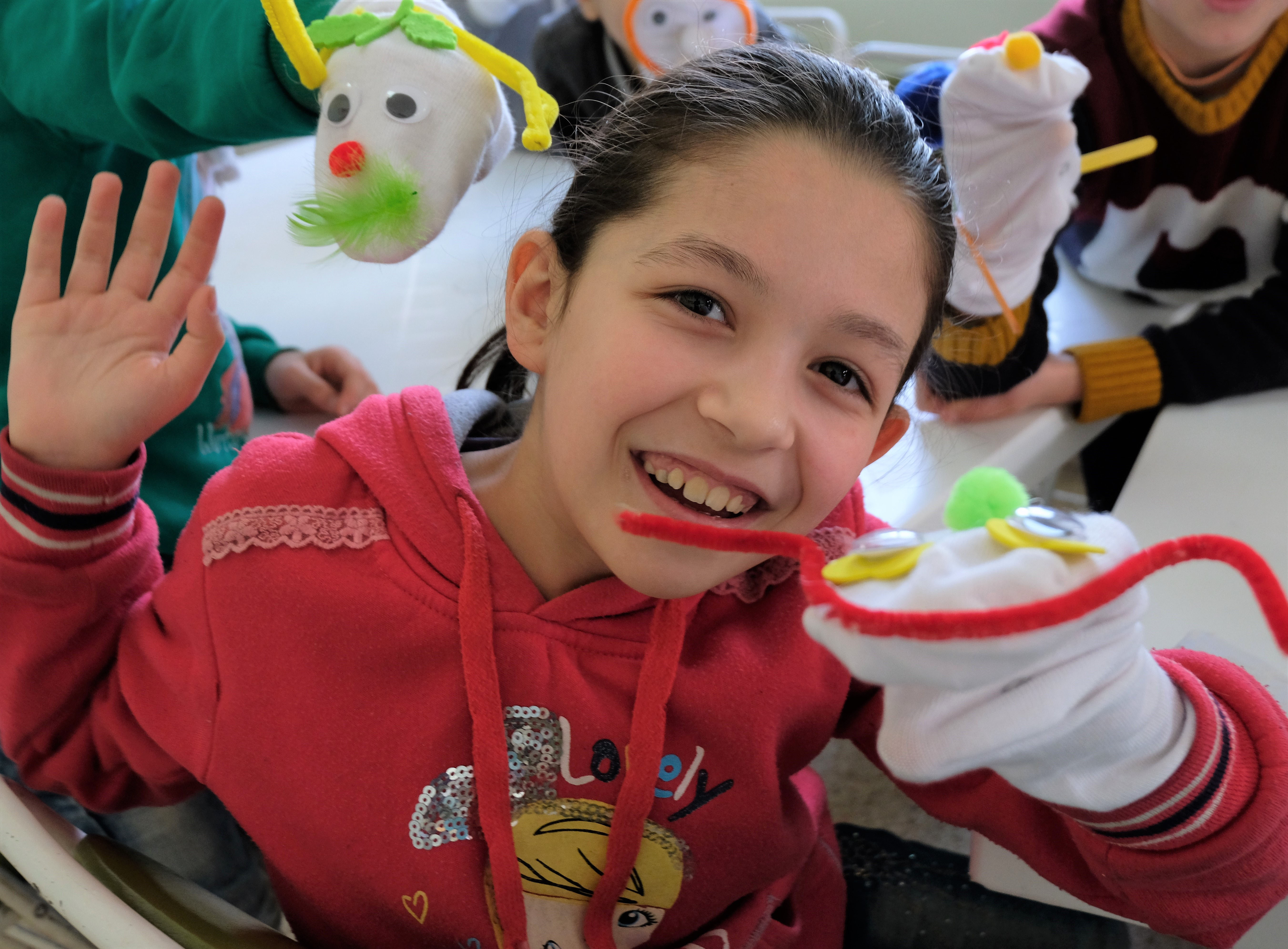A Letter from Elmarie and Scott Parker, serving in Iraq, Lebanon and Syria
March 2020
Write to Scott Parker
Write to Elmarie Parker
Individuals: Give online to E200504 for Scott and Elmarie Parker’s sending and support
Congregations: Give to D507569 for Scott and Elmarie Parker’s sending and support
Churches are asked to send donations through your congregation’s normal receiving site (this is usually your presbytery)
A few months ago, during our “Strong Kids/Strong Emotions” program for refugee kids, Hadil (not her actual name) was sitting across from me (Scott), stringing beads to make a bracelet.
The moment that she finished and began to tie the ends together, the string slipped and all the beads clattered to the floor. We exchanged looks of disappointment, but she tried again. On her second attempt, the string slipped and the beads fell once again, but Hadil tried again. She came close to breaking into tears, but she held it together.
When she finished the third string of beads and handed them to me to tie the ends, she raised her finger and gave me a huge grin, as if to say, “Okay, buddy, we’re not gonna screw this up a third time!”
A while later, a boy next to us accidentally let his string of beads clatter to the floor. Immediately, Hadil and I looked at each other, raised our fingers and broke into huge grins. The rest of the day (and the weeks to follow) this became our “thing” to joke and laugh about.
This moment was a micro-lesson in resilience, and I think it will continue to have ripples in Hadil’s life as she navigates the tough road of being from a displaced family.
“Strong Kids/Strong Emotions” is a play-based trauma resiliency program for refugeed Iraqi and Syrian kids living in Beirut. I began this program in 2017 in partnership with the Middle East Council of Churches (MECC) for the purpose of helping children like Hadil use play in order to process and heal from the traumatic experience of being violently forced from their homes by extremist groups like ISIS. We use storytelling, games, puppetry and art to help the “Strong Kids” participants develop the skills that make up emotional intelligence: understanding one’s emotions (especially the painful ones), learning how to articulate and manage them, and figuring out how to be emotionally healthy in the midst of challenging circumstances.
As PC(USA) mission co-workers, we are regularly encouraged to reflect on how our work connects with our denomination’s vision of addressing systemic poverty, structural racism, and congregational vitality. These three focal points keep me centered on what is most important and where we need to keep asking how we can make an even more substantial impact.A 2011 article by the Urban Institute cites research making the connection between childhood trauma and systemic poverty, emphasizing that a child’s learning is dependent upon the healthy cognitive/social/emotional development which is under threat when the child suffers from untreated trauma. Many of the younger “Strong Kids” participants were likely not even born when their families fled extremist violence, but are experiencing the effects of “generational trauma” all the same. Each week, when I watch the kids become excited about some puzzle game they need to solve or use their imaginations to turn colored pipe cleaners into a unique masterpiece, I know that their minds are engaged in learning, that healing is slowly taking hold and that this will serve them well in creating a future for themselves.
Each “Strong Kids” course is twelve weeks long and is made up of around fifteen Iraqi and Syrian kids (ages 7-12), both Christian and Muslim. People are often surprised to learn that, for many regions in the Middle East, Christians and Muslims have lived together fruitfully for many generations. Friendships between members of each faith have been a normal thing. It has not been until war was introduced by an outside force that racial tensions and divisions became strong between religious communities. At “Strong Kids,” Christian and Muslim students make friendships and play together as naturally as they did before the war.
After each “Strong Kids” session I regularly post pictures and a reflection on social media or my blog findaworld.org. Each time I do this, friends comment on how “normal” the people look. Kids are kids. Muslim moms dress more modestly, but they are regular moms. Refugees are in a very hard situation, but they are normal people. In this way, I attempt to challenge racism by showing the FACE of the Middle East, of Muslims, of refugees, and to tell their stories.
One of the joys I experience from “Strong Kids” is how strongly it is supported by so many of our PC(USA) partner churches. Some support us financially, some with the occasional suitcase packed with craft supplies; many support us with prayer during their worship services, Sunday school, and VBS. Each congregation supports “Strong Kids” with their own unique love language and each one uniquely participates in God’s mission on the other side of the world. As I talk with these partner churches about their involvement with “Strong Kids,” I am aware of the vitality. These churches hear the words “Iraq,” “Syria,” and “Refugee” every day on the news, and they are choosing to do something about it. They are choosing to do something about a situation that matters deeply to the heart of God.
Thank you for your role in this work of using “Strong Kids/Strong Emotions” to follow the huge heart of God by engaging poverty, racism, and the life-giving partnerships that make our churches and our lives truly vital.
Scott and Elmarie Parker
![]() You may freely reuse and distribute this article in its entirety for non-commercial purposes in any medium. Please include author attribution, photography credits, and a link to the original article. This work is licensed under a Creative Commons Attribution-NonCommercial-NoDeratives 4.0 International License.
You may freely reuse and distribute this article in its entirety for non-commercial purposes in any medium. Please include author attribution, photography credits, and a link to the original article. This work is licensed under a Creative Commons Attribution-NonCommercial-NoDeratives 4.0 International License.


